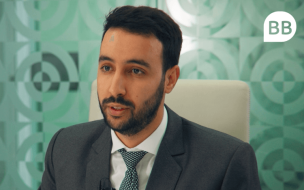That’s why the salary you earn after your Master in Finance is a key part of the return on investment (ROI) you get from business school.
When choosing a program, you want to identify a school that’ll give you the best chance of hitting your career goals and paying back your student loan in the quickest time possible.
Master in Finance salary: Where will you earn the most?
Master in Finance graduates from MIT Sloan School of Management earn the most of any finance master’s grads in the world, according to the Financial Times’ Masters in Finance pre-experience ranking 2022. Grads from the school earn on average $174,752 three years after completing their degrees.
The school is narrowly followed in second place by Tsinghua University School of Economics and Management. The MS in finance salary for Tsinghua students three years after graduation is $174,729.
China performs strongly when the FT’s ranking is adjusted for salary. The country has three schools in the overall ranking, and they all feature in the top 10 for Master in Finance salary.
Alongside Tsinghua are the Shanghai Advanced Institute of Finance (SAIF) at SJTU—whose grads earn around $163k three years after graduation—and Peking University’s Guanghua School of Management—whose students earn salaries of $152k three years after completing their degrees.
France is another country where you can expect a strong salary return from your MS in finance. Business schools in France dominate the rankings in 2022, and they also lead the way with three schools in the top 10 ranking for post-degree salary.
HEC Paris, the world's top-ranked MSc in Finance sees grads earn salaries of around $172k. After HEC Paris, ESCP Business School is ranked fifth in the world for salary. Finance master’s graduates from the school can expect to earn on average $155k three years after their degree. ESSEC Business School sits in ninth for salary—grads earn just under $128k on average.
The top 10 is rounded off by the University of Oxford’s Saïd Business School in seventh place, where grads earn around $140; eighth placed IE Business School, where grads earn close to $135k; and 10th place London Business School, where you can expect to earn around $127k three years after your degree.
READ: Masters In Finance Jobs: Which Companies Hire The Most MiF Graduates?
Best Master in Finance programs for salary increase
When looking at Master in Finance salary, the amount by which you can expect to increase your salary is another key metric to consider when choosing a program.
Graduates from HEC Paris increase their salaries far more than any other school, grads increase their salaries on average by 111%. Warwick Business School is the next best school for salary percentage increase, at 88%.
Tsinghua is in third place for salary increase, where grads can expect an 83% increase on their pre-degree salary. Universita della Svizzera italiana is ranked fourth, where graduates can expect a salary spike of 78%.
SDA Bocconi and the Shanghai Advanced Institute of Finance at SJTU—both ranked in the top 10 for overall salary—are also in the top 10 for salary increase. SDA Bocconi finance master's grads increase their salaries by 73%, whereas grads from SAIF see a 71% increase on their pre-business school earnings.
Return on investment of a Master in Finance
The amount you earn and how much you increase your salary by after business school are just two metrics by which to judge a program’s overall ROI. Though weighing up the first of these metrics against your program’s cost is a great way to work out how long it’ll take you to pay back any financial aid.
The program at HEC Paris, for example, might cost $38,000 in tuition and fees, but grads earn more than three times that amount three years after graduation.
The same can be said of the program at Stockholm School of Economics. The program costs around $30,000, but students earn close to $98,000 three years after graduation. The program is also tuition-free for citizens of any EU/EEA country or Switzerland.
READ: Masters In Finance: USA Vs Europe
The Financial Times also breaks each program down by value for money—according to alumni salaries today, course length, tuition fees and other costs—and the extent to which alumni achieve their goals.
The French schools dominate the top 10 when it comes to helping alumni achieve their goals, taking three of the top four spots. 97% of ESCP grads achieved their goals, so too did 94% of HEC Paris and 91% of ESSEC grads, while 92% of Spain's IE grads achieve their aims.
The Master in Finance programs from Oxford Saïd and Nova School of Business and Economics in Portugal scored at least 90% when it came to helping alumni achieve their goals. SKEMA, LBS, Imperial College Business School, and McGill University Desautels in Canada all scored 89%.
Interestingly, ESCP is the only school among the top 10 for high earning graduates to also be ranked in the top 10 for value for money.
The best programs for value for money can be found in Switzerland. Lucerne School of Business places top, followed by St Gallen and HEC Lausanne. Other highly ranked value for money programs are Tilburg University School of Economics and Management in the Netherlands (fourth), and Sweden's Lund University School of Economics and Management(fifth).
When choosing a Master in Finance degree, the return on investment of your program goes beyond just the salary you earn at the end. You should use the rankings as a guide to inform your list of target schools, and take into account the value for money of a program, alongside how well a school helps its alumni reach their goals.
After this, speak to alumni and admissions staff from schools that pique your interest, and you'll be well on your way to finding a Master in Finance program that's the right fit for you.
This article was first published in August 2021 and updated on June 16 2022.
20 Best Masters In Finance Programs | Financial Times Ranking
RECAPTHA :
d8
20
90
5f










